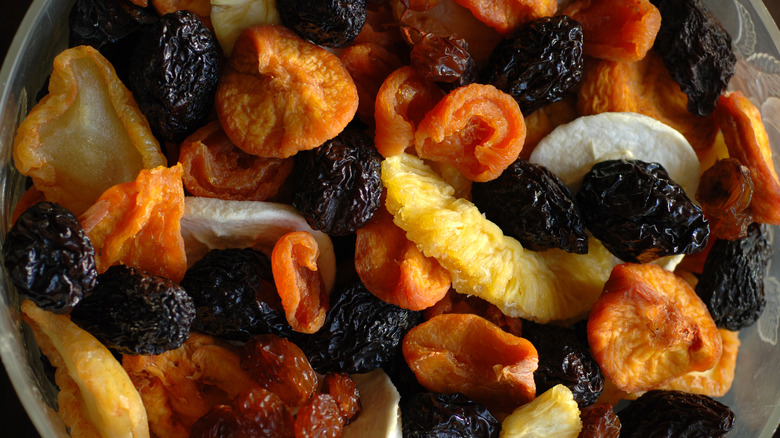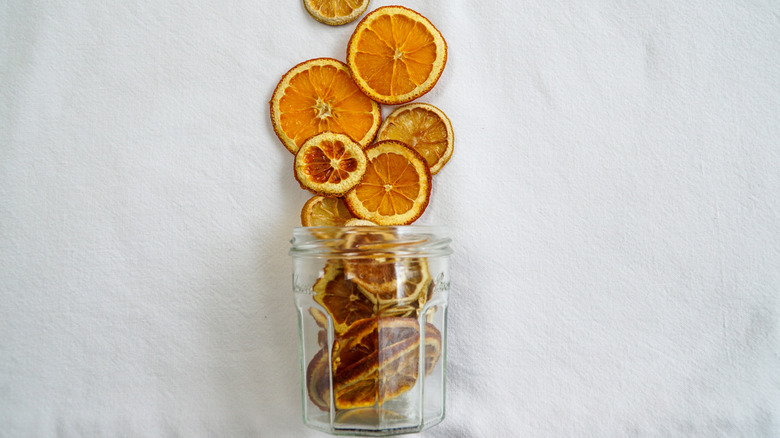Never Store Homemade Dried Fruit Without This Crucial Conditioning Step
Dried fruit is a fantastic staple to have around the kitchen. It is a key ingredient in items like trail mix and sephardic haroset, lending dishes a bright pop of flavor and a signature chew. Additionally, drying fruit at home is a great way to prevent food waste when you find yourself burdened with a surplus. However, making homemade dried fruit can be a complicated endeavor, and it's important to take the proper precautions in order to prevent the end product from becoming hazardous. That is why we recommend conditioning your dried fruit before storing it away long term.
Dried fruit stores well because of its low moisture content. When food has its moisture removed, there is less water for bacteria and other pathogens like mold to grow and multiply, thereby preventing the food from spoiling. This only works if the food has been sufficiently dried, however, so you must condition your home-dried fruit by checking it intermittently to ensure that the moisture is truly gone. In order to do so, simply place your dried fruit in a sanitized jar and leave it for just over a week, checking of it once a day for any condensation that may have occurred within the jar. If no condensation appears during this time, your fruit is fully dry, and you can go ahead and store it away. If any moisture does reveal itself, however, this means that the fruit needs to be dehydrated more before it can be considered shelf stable.
How to increase the chances of successful drying
Drying high-water-content foods like fruit at home can be troublesome since homemade dehydrating is less effective than industrial methods. The most accessible method to most people is using the oven to heat the fruit and remove moisture. However, this will never work as well as a true dehydrator, which is an appliance specifically designed to dry out foods. If you are serious about preserving fruits by drying them, then you may want to invest in one of these tools.
You can also ensure better drying by slicing the fruit you are using more thinly, as this reduces the likelihood of moisture being hidden in the center of the fruit. It's also worth noting that conditioning is always needed for dried fruits but rarely for dried vegetables, so if the process intimidates you, you can always start with other types of produce. Properly dried fruit will last much longer than fresh. You can store the fruit at room temperature in a cool dry place and it will last for at least four months if not far longer. You can also refrigerate dried fruit to make it last even longer in storage.

